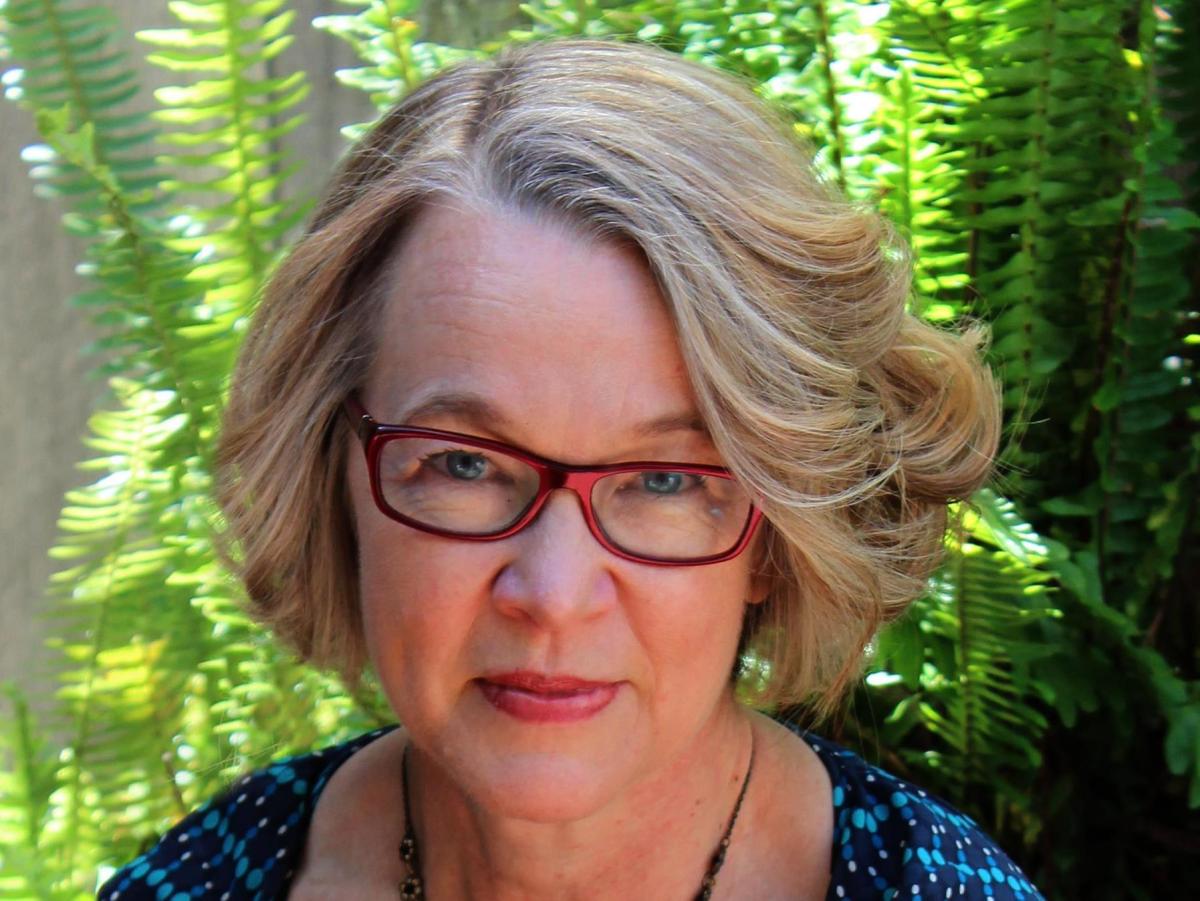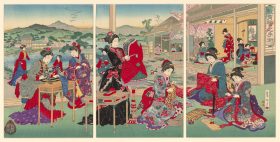Gabrielle Carey
Why do writers’ festivals matter? Can they ever be more than a talkfest? Aren’t books—print books anyway—already ‘so last century’? Three days at the Perth Writers Festival have reaffirmed our confidence that both writers’ festivals and books, even print books, do still matter. The ability of writers to change lives, even to change countries, societies and policies, was front stage during this festival; there seemed also to be agreement that e-books and print books are beginning to coexist not merely in a passive way but rather feeding from one into the other in a positive proactive way. The two media are finding their balance. They are becoming complementary partners. Writers’ festivals, and books, still matter.
The Perth Festival has continued and built on its now established tradition of a jam-packed world-class, three-day literary event moored among the cosy theatrettes, tents and pavilions of the beautiful University of Western Australia (UWA) campus.
This year saw no distinctive theme but an innovative introduction was the series of sessions titled ‘The Game Changers’ focusing on video games as creative narrative ‘texts’. This thread apart, a tempting grab-bag miscellany was on offer, graced by some truly five-star names: for example, veteran British author Dame Margaret Drabble and fellow Australian veteran Thomas Keneally, both also acclaimed internationals; American atheist author Lionel Shriver; the mighty Martin Amis, son of you-know-who; controversial voluntary euthanasia campaigner Philip Nitschke, Australian desert-trekking cameleer Robyn Davidson and youngest-ever Man Booker Prize-winner, New Zealander Eleanor Catton. The programme also included Family Day sessions and workshops on everything from writing for children to screenwriting, as well as a whole-day seminar on the nuts and bolts of the publishing industry featuring Affirm Press, Fremantle Press, Hachette, Hardie Grant, Momentum Books, Text Publishing and UWA Publishing.
Your reporters were fellow writers and editors as well as Perth residents, Carol Flavell Neist and Ilsa Sharp. We formed a team of two to report on as much of the programme as was physically possible. We found the frantic half-hour lunch breaks a bit too short, so had to miss a couple of things while feeding the ‘inner woman’! In any one-hour time slot, there were at least four separate sessions running. Carol has a particular interest in speculative fiction so she took her first plunge into the arcane world of video gaming during the festival. Ilsa has a background of living and working in Southeast Asia, so she focused on the handful of Asia-origin writers participating.
Day 1: Friday 21 February
Ilsa picked the morning session featuring three story-tellers specialising in the recollection of national and individual trauma: Chinese author and former communist propaganda movie star Anchee Min (memoirs Red Azalea [1994] and The Cooked Seed [2013], and six historical novels such as The Last Empress [2007] and Pearl of China [2010]), Indonesian author Leila S. Chudori (Pulang, or ‘Home’ [ 2012]) and Indian/Sikh-Canadian writer Jaspreet Singh (Seventeen Tomatoes [2004], and Helium [2013]), facilitated by Perth literary critic Bron Sibree.
A former ‘Red Guard’ immersed in the hardship and brutality of China’s collective farm ‘gulag’, Min made the point that those who suffer amid historic turmoil like China’s Great Cultural Revolution of the 1960s should think less about themselves as victims, more about how they may themselves have contributed to the problem. She continued in the afternoon, in conversation with well-known Australian author and translator Linda Jaivin, who is fluent in Mandarin. Describing the horrors of hard labour on China’s collective farms under Maoism, Min demonstrated a lively physicality, miming her struggle to plant and harvest rice paddy in the fields, and the ballet of a full bayonet drill in readiness for the day when she would have to kill the American enemy. Ironically, her books are published in 33 languages worldwide, yet not in Chinese since China’s political climate does not favour her work. She issued a sober warning: ‘I worry about the next generation in China. They are not learning the lessons of the Cultural Revolution. They are not putting it in the textbooks. That is going to hit us in a big way.’
Leila S. Chudori too works on the remembering of inconvenient truths such as the massacre of Indonesian communists in 1965, seeking answers to ‘the black holes of Indonesian history’. Singh’s moment of truth is the little-known systematic assassination of thousands of Sikhs in Delhi in 1984 just after Sikh bodyguards had betrayed and murdered India’s prime minister Indira Gandhi. The three writers shared solid reasons to use fiction as their preferred tool for processing non-fictional events: for Min, the medium is a way to avoid lawsuits, while for Singh it is simply more engaging than a ‘paralysing Human Rights report’, and for Chudori, the habit of writing the truth only between the lines in a repressed political environment has made fiction the natural choice for her.
Carol elected to hear author Jo Baker talking with Murdoch University literature lecturer Olivia Murphy about her book Longbourn. As the name suggests, Longbourn is a Pride and Prejudice spin-off, joining other such quasi fan-fiction as Seth Grahame-Smith’s Pride and Prejudice and Zombies and PD James’ Death Comes to Pemberley. Baker describes Longbourn as a ‘subquel’. She explains this term as referring to the subclass of household servants who are the main characters, but it could well have stood for ‘subversive’, for this is indeed a subversive novel. It gives leading roles to the below-stairs characters, Sarah the maid, Mrs Wells the housekeeper and the un-named butler whom Baker has judiciously married off to Mrs Wells. The resulting romp provides food for thought about our obsession with wealth and position, which almost rivals that of the high-born characters themselves.
Next, Carol headed for a more obviously serious session in which Australian writers Susan Wyndham and Gabrielle Carey chatted to writer and professional publishing lecturer at Curtin University, Rachel Robertson, about how we respond to the deaths of our parents. Carey’s book, Moving Among Strangers (2013), was a long-term project that began with the death of her mother, a friend of Australian author, Randolf Stow. It was only with Stow’s own death in 2010 that Carey came up with an approach that incorporated the loss of Stow as well as those of her parents and other family members. Wyndham’s response to the loss of her mother was to put out a call for stories to include in her anthology, My Mother, My Father (2013). The result was a garland of stories that many readers in mourning have found uplifting and comforting.
Ilsa’s last stop in the morning was to hear the grand old man of Australian literature, 78 year-old Thomas Keneally, again facilitated by the indefatigable Bron Sibree. What can you say new about a Booker Prize-winner author (Schindler’s List [1982]), now up to his 33rd novel (Shame and the Captives)? Perhaps just that above all, he is a human being, endowed with a finely self-deprecating sense of humour. He sees his profession quite simply as his work, a job, because he was brought up to believe, ‘If you don’t work, who are you?’ Keneally’s keen sense of social injustice, born, he surmises, of his Irish convict ancestry (see his The Great Shame [1999]), surfaced clearly in this session, as well as his squirrel-like eclecticism, deeming almost any topic suitable for his beady-eyed investigation.
After lunch, Ilsa took off to hear the always confronting Philip Nitschke, tarred ‘Dr Death’ by some, in conversation with disability campaigner and broadcaster Geraldine Mellet about his new memoir Damned If He Does. Ilsa had not expected the dapper figure in aquamarine-white checked shirt with matching turquoise shorts who presented onstage, imagining someone perhaps more dour. Nitschke, it emerged, has never been content to tread paths dictated by others. He has always questioned, challenged, and stood his ground. Like others in the voluntary euthanasia movement, he has recently shifted ground to the even more radical position that ‘rational suicide’ should be an option available to anyone of sound mind, even if not terminally ill.
Carol sat in on a crime writers’ panel, ‘Boomtown Rats’ that featured Fremantle author Alan Carter, Perth novelist Robert Schofield (Heist [2013]) and creative writing lecturer David Whish-Wilson (Perth [2013]) in conversation with Sean Gorman, a Curtin University research fellow in Aboriginal Studies. The speakers, ‘insiders’ by virtue of being ex-policemen and miners themselves, agreed that crime writing has boomed in Perth over the past decade. All three feature Perth in their books, some of which are police procedurals while others are mysteries. All make use of mining, since crimes involving mining scams and theft have long been a feature of illegal shenanigans in the West. They all agree that while Perth’s ‘Wild West’ image is fading, it definitely has not vanished!
Both Carol and Ilsa found the afternoon session with the enigmatic Robyn Davidson (Tracks [1995] and Desert Places [1997]) irresistible. Davidson talked with seasoned WA journalist Victoria Laurie. She has mellowed over the more than three decades since she walked the central deserts of Australia solo with her camels (‘My idea of nomadism these days is moving among extremely nice hotels. Now I have a house…’). But that epic journey’s imprint on her psyche remains: ‘I was fundamentally altered, I was re-wired.’ She is depressed about the state of modern Australia (‘Frankly, I think we’re down the toilet’). But you sense that there will be more great things to come from Davidson, not least her upcoming new memoir (working title: Self Portrait with Imaginary Mother) which will focus on her mother (who suicided when Davidson was only 11) and her own childhood on a Queensland cattle station—‘Memory is an imaginative act, so I don’t know whether this memoir is fiction or what’. One crumb of hope for aspiring memoirists: since Davidson had no prior intention to write a book when she set out with her camel caravan, she had no notes or diary from which to construct her riveting Tracks some years later, so she had to re-live the experience from inside her own head. It can be done.
Click here to read our review of Perth Writers Festival: Lionel Shriver and Martin Amis
Click here to read our review of Perth Writers Festival: Day Two
Click here to read out review of Perth Writers Festival: Day Three
Perth Writers FestivalPerth International Arts Festival
www.perthfestival.com.au
20 – 23 February





